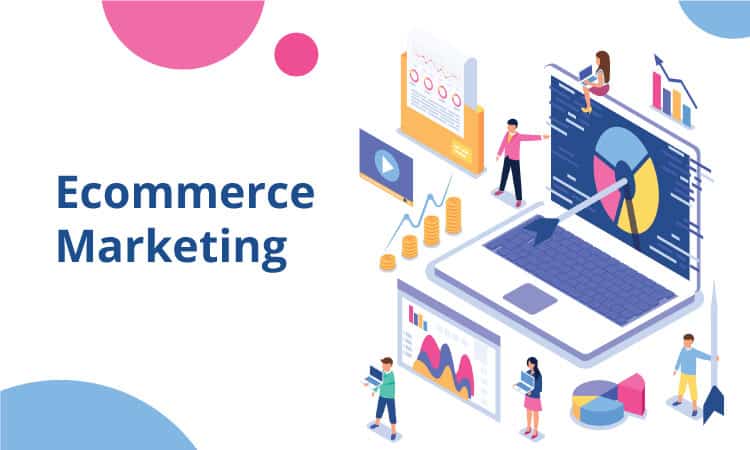Ecommerce Marketing
Ecommerce marketing is a set of strategies and techniques used to promote and sell products or services through online stores or platforms. It involves a range of digital marketing tactics aimed at attracting, converting, and retaining customers in the highly competitive online retail environment.
Website Optimization:
- User-Friendly Design: Ensure your e-commerce website is easy to navigate and mobile-responsive.
- Fast Loading Speed: Slow websites can lead to high bounce rates; optimize for speed.
- Clear Product Descriptions: Provide detailed and accurate product information.
- Secure Checkout Process: Implement trust signals and secure payment options.
Search Engine Optimization (SEO):
- Keyword Research: Identify relevant keywords to optimize product listings.
- On-Page SEO: Optimize product descriptions, meta tags, and images.
- Content Creation: Create high-quality blog posts and articles to attract organic traffic.
Pay-Per-Click (PPC) Advertising:
- Run paid advertising campaigns on platforms like Google Ads and social media to drive traffic to your e-commerce site.
- Use retargeting ads to re-engage with potential customers who have visited your site but didn’t make a purchase.
Content Marketing:
- Create and share valuable content related to your products or industry.
- Use content to educate, inform, and engage with your target audience.
Social Media Marketing:
- Promote products and engage with customers on social media platforms.
- Use social commerce features on platforms like Instagram and Facebook.
Email Marketing:
- Build and segment email lists for targeted campaigns.
- Send personalized product recommendations, promotions, and updates to subscribers.
Influencer Marketing:
- Collaborate with influencers in your niche to promote your products to their followers.
- Leverage influencer credibility and reach to boost brand awareness.
Affiliate Marketing:
- Set up an affiliate program where affiliates promote your products in exchange for a commission on sales.
- It’s a cost-effective way to expand your reach.
Conversion Rate Optimization (CRO):
- Continuously optimize your website to improve conversion rates.
- Test various elements like CTAs, product images, and checkout processes.
Customer Reviews and Ratings:
- Encourage customers to leave reviews and ratings for your products.
- Positive reviews can build trust and influence purchasing decisions.
Social Proof:
- Display the number of customers, social media followers, or any relevant certifications to boost trust and credibility.
Remarketing:
- Use retargeting techniques to re-engage with users who have visited your site but didn’t convert.
- Show them personalized ads to encourage return visits.
Analytics and Data Analysis:
- Monitor and analyze user behavior and sales data to make data-driven decisions.
- Identify areas for improvement and adjust your strategy accordingly.
Customer Retention:
- Implement customer retention strategies, such as loyalty programs, email campaigns, and personalized recommendations, to keep customers coming back.
Multi-Channel Marketing:
- Utilize various online sales channels, such as Amazon, eBay, and social media marketplaces, to expand your reach.
Ecommerce marketing is an ever-evolving field, and it’s important to stay updated with the latest trends and technologies. Experimentation and a data-driven approach are key to success in this highly competitive space.

